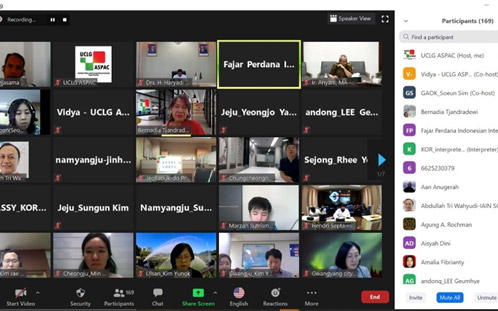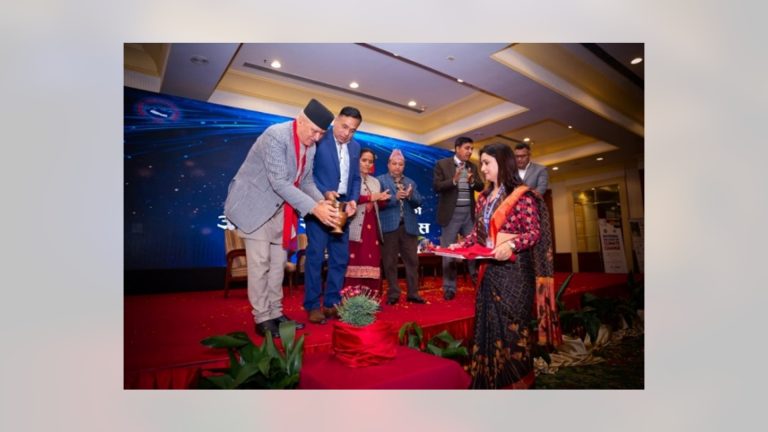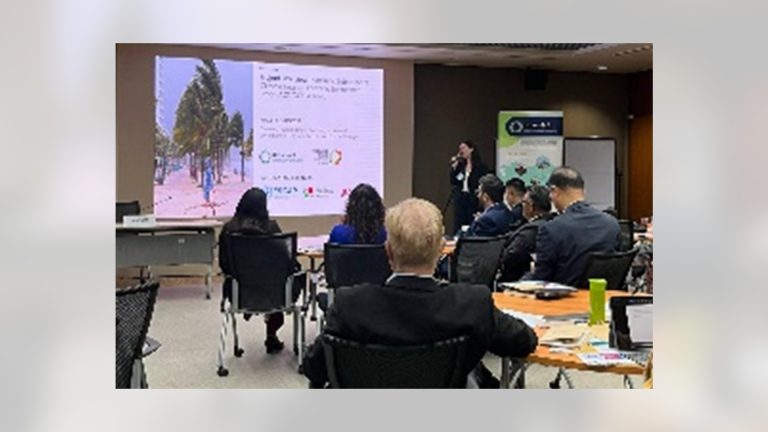1 July 2020 | JAKARTA – As collaboration has been amplified as solution for local governments in tackling urban challenges, COVID-19 included, UCLG ASPAC provided space for cities and local governments in Indonesia and South Korea to virtually connect, discuss, and identify opportunities for strategic cooperation with mutual benefits through Web-Share: The Strategic Cooperation between Indonesia – South Korea (at the Local Level). The webinar was jointly organised by UCLG ASPAC and GAOK as part of partnership during the global COVID-19 pandemic. The event had over 160 local government representatives in attendance. In his keynote presentation, the Korean Ambassador to Indonesia in Jakarta Mr. Kim Chang Beom highlighted strong commitment and support from South Korea Government during COVID-19 through the friendship and solidarity assistance to Indonesia Government. The assistance included USD 1 million for medical purposes and strategies in dealing with the pandemic through holistic participation. He mentioned the importance of pro-active participation from a wide range of stakeholders and that openness and transparency are important in building the trust of citizens to the local government itself. He also advised local government to prepare for a second wave that could potentially occur next few month.
The opening remarks were delivered by Mr. Jeon, Seong Hwan, Secretary General, GAOK and Dr. Bernadia Irawati Tjandradewi as UCLG ASPAC Secretary General. Both emphasised that the main challenge in dealing with pandemic COVID-19 is to maintain the discipline of the community to stay compliant with the relevant protocols. However, behind it all, there are lessons that can be learned for example the best practices or actions that have been done by the Korean Government. The webinar focused on the discussion of local government cooperation between Indonesia and Korea and how the Korean local governments have experienced COVID-19. In this case, the spirit of solidarity plays an important role.
Other speakers from local governments highlighted the past cooperation, for example Mr. Kim Soung-eun, Ambassador for International Relations Jeju Special Self Governing Province, shared that local government of Jeju has been doing an active response through the establishment of a provincial-scale Emergency Management Agency and the preventive measures against large-scale infections. Mayor of Yogyakarta, Mr. Haryadi Sayuti, shared that the city is helping the cooperation between traditional market with online transportation service operator in order to optimise online payment method and redesigning “Jogja for All” programme that aims to revitalise local economy and prosperity through relaxation of tax and tariff (allowance so that people can pay tax for a longer period).
Mr. Ahyani, City Secretary of Surakarta, mentioned that local government has been enacting public activities with limited capacity (50 per cent) and a maximum time of two hours. Tourist spots have also begun to open so the economy is expected to recover again. During the pandemic, there are cooperation opportunities in technology support dissemination, industry sector investment, entrepreneurship-training programme, optimising small business to new normal, and tourism sector with health protocols.
Mr. Jung Hyunok, Director General Gwangyang City, also explained that after the new normal, there is a need to build a new strategy involving collaboration and exchanges between local governments. Vice Mayor of Padang, Mr. Hendri Septa, mentioned that the local government has also applied “PSBB” (large scale social and physical restriction) programme.
In the closing remarks, UCLG ASPAC Secretary General, Dr. Bernadia Irawati Tjandradewi emphasised that local government, as a spearhead of development, plays an important role in the face of this pandemic as well as in recovery process primarily from the economic side. Therefore, the collaboration among local governments is indispensable for accelerating recovery. She also mentioned that follow-up also requires the presence of devices or tools that can measure the benefits of cooperation between local governments in order to evaluate performance and enhance collaboration between them.











